 |

Art 324
Web Design (3 units)
Spring 2012
Course #2034
six hours laboratory per week
Mon/Wed 3:00-5:50 pm, Topanga Hall 1976, Art Computer Lab
Professor Liz King
email: liz.king@csuci.edu
Office hours: Mondays 1-2 pm and by appt.
Office location: Bell Tower West #1215 (click here to see map)
course website: http://www.lizking.tv/art324
*Information contained in this syllabus, other than that mandated by the University, may be subject to change with advance notice,
as deemed appropriate by the instructor."
course description & topics | texts | materials | hardware | software | wacom tablets | grades | disabilities | holidays | final | lab policy
1. Catalog Description
Six hours activity per week
Prerequisite: ART 204 and ART 205
Studio projects investigate artistic techniques and digital applications leading to the design and implementation of websites. The course explores factors that affect Web layout and design, such as browser, screen resolution, navigation, connection speed, typography, graphics, and color. An introduction to basic HTML will also be covered. Repeatable for up to 6 units.
2. Expanded Description
The course involves lectures and exercises on a series of topics. Students complete several web projects during the term to apply the concepts discussed. Its focus is on on the design and implementation of successful web sites. Students will learn the fundamentals of web site design, web graphics, HTML, and authoring tools. Design issues such as effective communication, page layout, audience, technical constraints, and navigation will be addressed. Students will design and implement web sites that can be included in their portfolios. A final project is assigned that synthesizes the concepts learned in the production of a small commercial website. Grades will reflect the quality of the sites visual, technical and information design for the assignments and final project.
3. Course Objectives (Student Learning Outcomes)
Through studio projects involving technical demonstrations, artistic exercises, discussions and critiques students will accomplish the following:
- Think critically about web design
- Design successful web sites with effective design of visuals, navigation and information
- Create web sites by hand coding HTML using a simple text editor and by using a web authoring tool (Dreamweaver)
- Utilize the essential features of the web including:
- HTML hand-coding
- basic CSS
- creating gif, jpg and png images
- image slicing
- links
- tables & divs
- rollovers
- complex image viewers such as Lightbox and Highslide
- Defining a site & uploading to the Web via FTP
- Demonstrate an understanding of the web design process
- Name files correctly and FTP files to a web server
- Explore artistic concepts involved in the development of ideas, layouts and the production of web projects created utilizing emerging technologies
- Express personal ideas and opinions through the artistic process
- Develop technically proficient and intellectually sound individual web projects
- Begin preparation leading towards a career as a web designer or simple gain the ability to take
on web projects
4. Topics/Terms to be covered
- Introductory History of the Internet and the World Wide Web
- ARPANET
- Tim Berners-Lee
- server
- JavaScript
- client
- Browsers
- URL – Uniform Resource Locator
- HTML – Hypertext Markup Language, HTML 4 will be taught and an overview of HTML 5 will be covered
- SGML – Standard Generalized Markup Language
- W3C – World Wide Web Consortium
- ISP – Internet Service Provider
- FTP – File Transfer Protocol
- tag
- element
- WYSIWYG
- DTD
- Basic HTML/XHTML tags
- Basic CSS text formatting
- screen sizes
- web graphics and image optimization
- FTP files to the Internet
- file structure/references, navigation design
- design process, image maps, tables
- rollovers,
- use of web and non websafe colors
- image slicing
- image viewers
- The basics of Cascading Style Sheets (CSS)
- buying and maintaining your own URL and hosting plan
- Dreamweaver CS5.5 Basics:
- Dreamweaver Interface: Insert Bar, Property Inspector, panels etc.
- Defining a site
- Document basics
- Linking
- CSS Essentials
- Typography
- Divs
- Layout
- Rollovers
- integrate JavaScript into website
- Forms
- Concept development which will include:
- Seeking out inspiration from the world and from the Web
- Sketching layout ideas for websites on paper
- Design Development
- Creating web design layout using computer graphics software (Photoshop, Fireworks and Illustrator)
- Implementing unique design ideas and typography
- Presentation and class critiques of projects.
- HTML files uploaded to the web via FTP(file transfer protocol) using Dreamweaver
5. Methods of Presentation
- Lecture
- Discussion
- Demonstration
- Hands-on
- Critiques
6. Recommended Texts
- Dreamweaver CS5 for Windows and Macintosh (Visual QuickStart Guide) by Tom Negrino, Dori Smith, Publisher: Peachpit Press; 1 edition (June 14, 2011), ISBN-10: 032170357X, ISBN-13: 978-0321703576
7. Required Course Materials:
1. Media for saving your files:
A media storage device such as:

Label your media with your name and phone number. ALWAYS back up your work, at school and at home, especially any work you put on the Art Program "Class Shares" server. Please remember that everything on this server is cleared off at the end of every semester!
2. The purchase of a Domain name web hosting from any hosting company or godaddy.com*.
*discount codes for godaddy can be found on fatwallet's website: http://www.fatwallet.com/GoDaddy-coupons
Depicted below is for a basic economy package that includes domain name purchase and hosting (you need both to have a website):
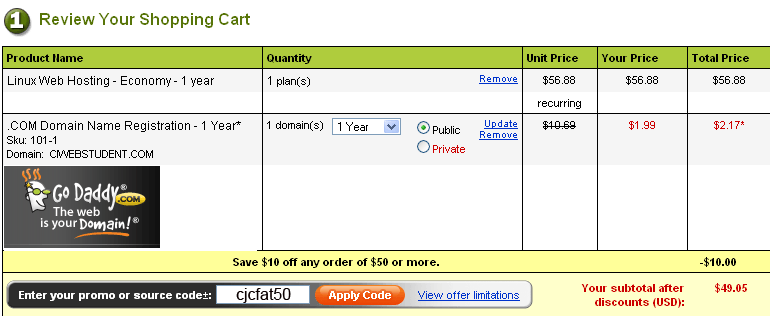
8. Required Software
This course requires that you have access to Photoshop , Fireworks, Illustrator and the following web authoring software:
- Dreamweaver CS5.5 or CS5
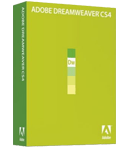 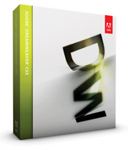
Usually the best deal is to buy a "bundle" which contains several pieces of software, the price is usually
cheaper if you go this way, for information about web bundles and the Master Collection on Adobe's site:
The software can be purchased at the CI bookstore on campus.
* If you do not have a home computer, The Art Complex here at school has the Mac computer lab in Topanga Hall (TH1976) and The Broome Library Art Computer Lab (BRO1760) that you will have access to by taking this course. (Please check the lab for hours of operation).
9. Hardware Information
- Dell Computers currently offers discounts on new computers through a special program for the academic community. Currently Dell is offering a 10% discount with a 3 year service agreement to our university community. For information on what computers are available and the program's benefits use the member login number and follow the link to the Dell website:
- CI students, faculty and staff may also shop at the Apple Store for CI, which provides special academic pricing on Mac computers
10. Resources for Student Computing Needs
11. Recommended materials
- Wacom Tablet:
A wacom tablet & pen (very highly recommended for drawing and ergonomic concerns) are available for purchase at wacom.com, or at any computer store or student software online store. Intuos 4 - 6x8 model costs $309 for students. Another option would be the small Bamboo tablet which costs $99.
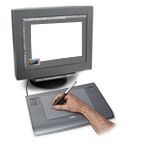
Wacom tablets are available in the lab. Pens may be checked out by me by giving me your student ID or driver's license at the beginning of class. Please return pens at the end of class and don't forget to get your ID. If you lose a pen you are liable for the cost of the replacement of the pen.
- Notebook/sketchbook or folder for collecting inspirational photos, drawings and for sketching ideas
- Computer Arts Magazine: http://www.computerarts.co.uk
- Communication Arts Magazine: http://www.commarts.com ($39/year student deal)
- back to top -
12. Methods of Student Evaluation
The final student grade in this course will be based on a combination of in-class assignments, homework assignments which will include a midterm project, design document and final project, quizzes, class attendance and participation. I expect you to be actively surfing the web for interesting websites (good and bad) and to be ready at all times with these sites as I may ask for them at the beginning of class. This will be part of your participation grade. Full attendance and participation is especially necessary since homework assignments must reflect successful solutions to the issues raised in class.
*You are expected to spend time outside of this class on the computer practicing the concepts covered in class, be it at home or in the Computer Lab here or on campus. There is no substitute for putting time in on the computer.
Your performance will be evaluated by:
- Your ability to successfully complete a series of assigned in-class and out-of-class assignments on time (as if I was a real client expecting a completed job). I DO NOT accept e-mailed assignments.
- All web projects should contain professional well thought-out content since they will be live on the Internet and represent yourself and the university since the sites are maintained on University servers. Websites with offensive content done in the course will not be tolerated. I will require that the site be removed from the CI web server and this will result in a failing grade for that assignment.
- Assignments will be given as we progress through the course material. You are expected to complete all assignments.
- Written or practical quizzes may be given and will test you on the information you have learned about specific computer software and concepts covered in class.
- Participation in the class – means contribution and concentration during class:
- Listen attentively
- Engage the professor and the other students in discussion.
- Bring in or email the Professor websites, resource websites or articles or news relevant to the class material that might be of interest to all the students.
- Attend class and willingly involve yourself in the class activities.
- Make constructive and thoughtful comments during class critiques.
- All exercises must be completed in order to pass the course. Late assignments
will reduce the assignment’s grade by one unit (A -> A-) each day. Website projects are only considered as complete when they are accessible from each students website.
- More than three absences without the Professor's prior permission will lower the participants final grade by one unit (i.e. an A will become an B). With each additional unexcused absence, the grade will drop an additional unit. Leaving class early or at the break will be counted as an unexcused absense. All exercises and projects must be completed to pass the course.
13. Course Policies
1. Professionalism & Attendance Policy
As a future design or art professional, you need to begin to develop a professional attitude toward all aspects of what you do. Class attendance and participation is required and has a significant effect on a student's success.
Students are expected to attend all classes--arriving on time and staying until the class is dismissed. Excessive absences as well as consistently arriving late to class will have a negative effect on the overall grade. Roll will be taken regularly. Students arriving after the classes has started and I have taken roll are considered tardy.
If you have 3 or more unexcused absences your overall grade will be lowered one grade level, this is cumulative. Leaving class early or at the break will be counted as an unexcused absense. If you know you will not be attending class, for whatever reason or if you have to leave class early due to illness, please let me know ASAP. You must email me one day ahead of time and provide appropriate documentation as you would when missing a day of work.
I will not email or return calls to provide with the information you missed. Please ask fellow classmates for the material missed. Not all information covered in class will be on the website.
3. Late work
All assignments should be submitted in class on the specified due date. Late work will automatically receive a lower grade, no exceptions. For every week a project is submitted late the grade is lowered on grade level.
- back to top -
14. Grading Criteria
- Attendance, Participation and Critique Participation 10%
- Assignments: hand-coded pages (proj1) & in-class assignment (Fulton Bike website) 10%
- Midterm Portal website 20%
- Design Document 20%
- Final Project 40%
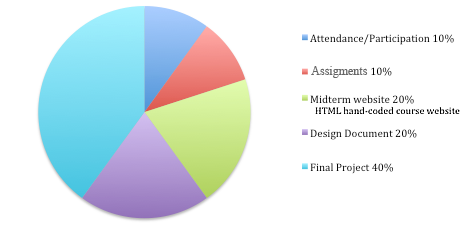
This course utilizes a “+/-” grading system. Grades will be determined based on the breakdown of the following corresponding percentages of total points earned.
Grades will be as follows:
A Exceptional
B Above average
C Average
D Below Average
F Failing (or project not complete)
No make-up quizzes will be given for the individual quizzes or the final. You must hand in your final project when it is due. The final website must me uploaded to the Internet, or the final will receive a failing grade on the final. No late projects will be accepted. No excuses. The final CD/DVD will also include ALL class projects, including the final project. CDs not received on that day or CDs that do not work will receive a failing grade for the final. Please perform testing on CDs before handing them in to make sure they are in working order. CD’s must be neatly labeled with your Name, email address, Art 324, Fall 2012, CD’s must be submitted in a sleeve or plastic case – no exceptions.
*Cheating, plagiarism, or other forms of academic dishonesty will affect your grade adversely, as will non- attendance and late arrival to class and early departure from class.
15. Instructions for Students on Academic Dishonesty
Please see this website for policies and regulations regarding Academic Dishonesty:
http://www.csuci.edu/academics/catalog/2007-2008/12_policiesandregulations/50_academicdishonesty.htm
*Additionally, all work turned in for this course must be original work for this course and may not be submitted for other courses currently being taken or have been turned in for previously taken courses.
- back to top -
16. Holidays - No Classes
- Spring Break, March 19-24, 2012, no classes, campus closed
- Cesar Chavez Day, Fri. Mar. 30, 2012; campus closed
- Personal Day, No class-TBA
17. Final Dates
- Monday, May 14, 2012, 3:00-6:00 pm, Topanga Hall computer lab
18. Classroom Policy
- I will not permit students to use classroom computers for purposes other than assignments and work done in and for this class. Your participation and overall grade will be lowered if you participate in the following activities during class: Random web surfing not related to class activities, e-mailing, texting, listening to music with earphones, online chatting , playing games online, talking or answering cell phones, and working on assignments for other classes. Disruptive talking is very distracting to the instructor and your fellow students and will not be tolerated.
- Please turn off all cell phones before arriving to class.
- The material posted in CI Learn (Blackboard) and on the course website for this course is copyrighted and may be used for educational purposes only. No portion of the texts, presentations, films, videos, web links and other material can be reproduced in any format including electronic downloading or sharing of files.
- No portion of class lectures, discussions, and activities can be reproduced and used any format, including electronic, without the written consent of the instructor.
Student conduct, which disrupts the learning process, shall not be tolerated and may lead to disciplinary action and/or removal from class.
19. Students with Disabilities
If you have a disability kindly identify yourself to me so that you can receive reasonable accommodation for learning and evaluation.
Cal State Channel Islands is committed to equal educational opportunities for qualified students with disabilities in compliance with Section 504 of the Federal Rehabilitation Act of 1973 and the Americans with Disabilities Act (ADA) of 1990. The mission of Disability Accommodation Services is to assist students with disabilities to realize their academic and personal potential. Students with physical, learning, or other disabilities are encouraged to contact the Disability Accommodation Services office at (805) 437-8510 for personal assistance and accommodations.
Students with disabilities needing accommodations should make requests to Disability Resource Programs (DRP) located in the Educational Access Center, Bell Tower, Room 1541, email: accommodations@csuci.edu, phone: 805-437-3331 (V/TTY). Please discuss approved accommodations with me.
20. College use of student work
By participating in this course, your work may be used by CI, for promotional purposes only. These uses include, but are not limited to, display in physical and web galleries, promotional videotapes, and printed promotional pieces. You retain complete rights to your work, and CI may not use your work for non-promotional purposes without your prior agreement. Simply let your professor or Art Program chair Jack Reilly know if you do not wish to have your work shown.
21. Adds & Drops
It is the responsibility of the student to add (with my signature) or drop themselves from the class in accordance with the guidelines of the CI Registration Office.
22. Art Program Policies
1. ART Program Policy on Ownership, Copyright, Sale and Storage of Student Artwork
In accordance with CI Senate Policy SP 06-18 Policy on Intellectual Property:
Ownership of Student Artwork
Students retain ownership of tangible, physical artworks (objects) they create in their courses at CI, unless the Art Program/University has provided extraordinary funding, materials or other resources involved in the production or fabrication of the artwork. The Art Program/University may temporarily retain a piece of student artwork for a period of up to six months for the purpose of publicity or exhibition.
Copyright
Students own copyright to artwork they have produced at CI. By enrolling at the University, the student grants the Art Program/University nonexclusive rights to reproduce imagery of artwork that has been created in CI art courses for the purpose of documentation or publicity.
Sales of Student Artwork
Students have the right to sell artwork they produce in CI art courses unless the Art Program/University has provided extraordinary funding, materials or resources involved in the production or fabrication of the artwork. In the case that a student’s artwork is sold by the student or by the Art Program/University with permission of the student, the student is entitled to the entire sale price of the artwork. The student is solely responsible for collecting and paying applicable taxes related to the sale of the artwork as required by state and federal law.
2. ART Program Computer Lab Policies
- Only students currently enrolled in CI ART courses that utilize the ART computer labs (rooms TOP 1978 and 1932 and BRO 1760) for assigned coursework are allowed access to the lab and computers.
- No eating or drinking or open food or drink containers are allowed in the Topanga Hall Art computer labs.
- Computers and software applications may only be used for ART Program coursework and assignments and not for personal use.
- The ART computer labs are designed exclusively for the purpose of computer graphics and digital art applications. Absolutely no printing of research papers or related imagery is allowed.
- No multiple-image or reproduction printing is allowed in the ART computer labs. Please use campus copy machines for that purpose.
- Each student enrolled in an ART course that are scheduled in the ART computer labs will have 1 storage folder on located the ART Server for personal data storage of ART coursework projects. Do not create special icons, pictures etc. for personal identity on assigned folders.
- When creating your file on the ART Server you must use the following format: Lastname_Firstname. ART faculty or staff will delete files labeled with a different format.
- Limit your data storage to a reasonable amount. Files containing excessive data storage will be located and deleted.
- Do not install software of any kind (including Email programs) on the ART computer lab computers or ART Server.
- Do not leave files on the computer display/desktop; they will be subject to deletion. Help keep desktops clean and orderly.
- No downloading of music, movies, pornography or copyrighted material in the ART computer labs or personal computers, via the CI network. This is an illegal activity.
- In the case that there are empty/available computers during scheduled classes, ART students must have obtained permission (prior to class session) from the instructor of the class in session, in order to use an available computer in the ART computer lab. Students may not seek instruction for projects from other classes or in any way disturb the instructor or students enrolled in the class that is currently in session. It is entirely up to the discretion of the instructor to grant or deny permission to students not enrolled in the class who wish to work during other scheduled classes.
- Students working with audio must use headphones.
- Students must remove all files from the ART server at the end of the semester for hard drive clean up and reformatting.
- Students who disregard any of these rules will immediately lose access to the use of the ART computer labs.
- back to top -
|










